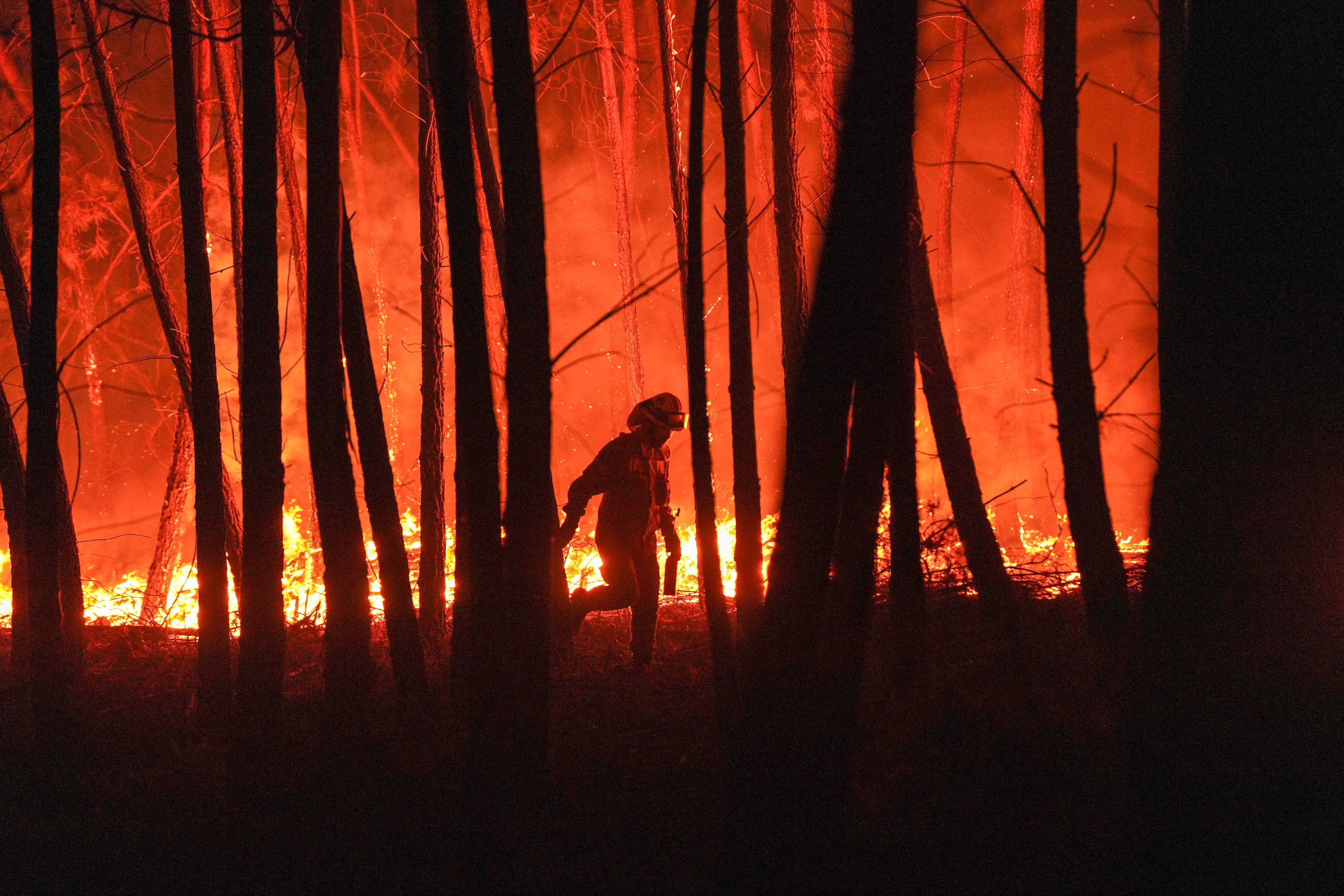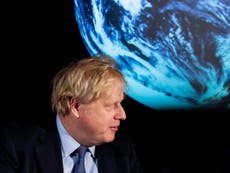Women must not be sidelined in climate crisis talks, says scientist Katharine Hayhoe
The Independent speaks to Prof Hayhoe as she is appointed chief scientist of the Nature Conservancy, one of the world’s largest environmental organisations

Your support helps us to tell the story
From reproductive rights to climate change to Big Tech, The Independent is on the ground when the story is developing. Whether it's investigating the financials of Elon Musk's pro-Trump PAC or producing our latest documentary, 'The A Word', which shines a light on the American women fighting for reproductive rights, we know how important it is to parse out the facts from the messaging.
At such a critical moment in US history, we need reporters on the ground. Your donation allows us to keep sending journalists to speak to both sides of the story.
The Independent is trusted by Americans across the entire political spectrum. And unlike many other quality news outlets, we choose not to lock Americans out of our reporting and analysis with paywalls. We believe quality journalism should be available to everyone, paid for by those who can afford it.
Your support makes all the difference.More effort must be made to represent women and minorities in climate crisis talks, says leading scientist Katharine Hayhoe.
The Canadian climate scientist said it was “very sad” to see too few women involved in the leadership of Cop26, a key round of UN climate talks that are to be hosted in the UK in November.
Prof Hayhoe was one of 400 female climate leaders to sign an open letter calling for the prime minister to “urgently address” the lack of gender balance in the UK Cop26 leadership team in December. The group noted that more than three-quarters of those on the Cop26 leadership team were men.
“The fact that today in 2021, over five years later, we are still talking about the need to include more women, is a testament to how slow we’ve been moving and how rapidly we need to accelerate change,” she told The Independent.
“Social science has shown us that the greater the diversity of voices that you have at the table – in terms of life experience, culture, knowledge, expertise, gender, race and other things – the bigger the range of possible solutions you’re able to come up with.”
Prof Hayhoe was this week appointed chief scientist at the Nature Conservancy, one of the world’s largest environmental organisations. Her new appointment will see her step down as co-director of the Climate Science Centre at Texas Tech University, although she will still maintain an academic role at the institute.
The Nature Conservancy operates in more than 70 countries and claims to have protected 125 million acres of land across the world. The organisation came under scrutiny for its alleged mistreatment of women and minorities in 2019, leading to the departure of two senior staff members.
Prof Hayhoe is the first woman to be appointed chief scientist at the organisation.
“Part of what convinced me that this was really a great fit for both of us was the fact that everyone I spoke to during the recruitment and interview process – whether it were a board member or the CEO or a scientist – brought up their concern over the need to include diversity,” she said.
She added that she hoped to use her role to reach out to and work with people across the political and socioeconomic spectrum.
“Climate change is extremely urgent,” she said. “We don’t have a magic deadline of 12, 11, 10 or 9 years. It’s more a case of every year counts, every tonne of carbon counts.
“We need everyone on board to help fix climate change. We’re not going to be able to fix it with only the people who are already concerned today.
“We have to show people that whoever they are, they already care – even if they didn’t realise it – because climate change is affecting the places where we live, the water that we drink, the food that we eat and the air that we breathe.
“It’s also affecting the bottom line of businesses, and the security and safety of our homes and our nations.”

She added that, in the face of increasingly sobering statistics and climate science research findings, it was important to keep sharing messages of hope for how we can take action.
“I make a practice of hope. I will go and look for hopeful stories,” she said.
“When we hear stories about unexpected actors like faith groups or large corporations who are taking action, when we learn that simple steps like reducing food waste can have a tremendous impact on our carbon footprint and can also help reduce hunger, when we learn that we when we act we are able to make a difference – that is what gives us hope.”
A Cop26 spokesperson: “Women and girls have a critical role to play in the fight against the climate crisis – as educators, decision makers and advocates at all levels. Progress is undeniably being made, with leading women among some of the most influential figures in international climate diplomacy today, but we all can and must do more.
“In line with the Gender Action Plan agreed at Cop25, the full, meaningful and equal participation and leadership of women in climate policy is vital for achieving long-term climate goals.”

Join our commenting forum
Join thought-provoking conversations, follow other Independent readers and see their replies
Comments